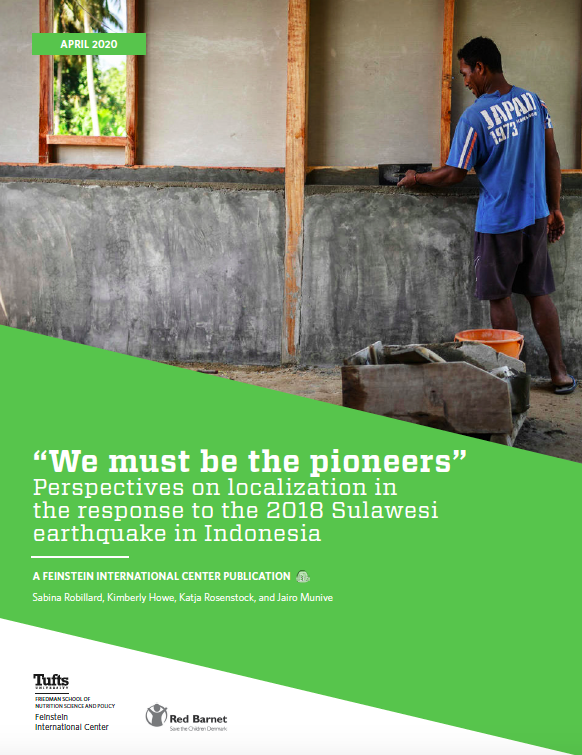In 2018, an earthquake hit the island of Sulawesi in Indonesia. Shortly thereafter, the government of Indonesia issued a series of policies prohibiting international organizations from directly participating in the response, requiring them to work through Indonesian counterparts. This made the response to the Sulawesi earthquake an important case study in the ongoing discussions about the localization of humanitarian aid.
This study found a humanitarian ecosystem in transition, with internationals learning to play different roles, the emergence of a larger class of nationalized non-governmental organizations (NGOs)[1], and a diverse set of local and national humanitarian responders. The stories and insights provided by the participants in this study indicated that the limits placed on international responders, while not perfect, were largely seen as a positive change across almost all categories of humanitarian responders. Significant work remains in ensuring that the implementation of similar policies in in future crises is increasingly effective, inclusive, and decentralized, but this response may indeed serve as a model for what future “localized” humanitarian responses may look like.
This is the second of two studies on localization done in collaboration with Save the Children Denmark; the first studied the process of localization in the Horn of Africa.
[1] Nationalized NGOs are a term for when international NGOs establish an independent affiliate in an aid-recipient country with local governance structures.

